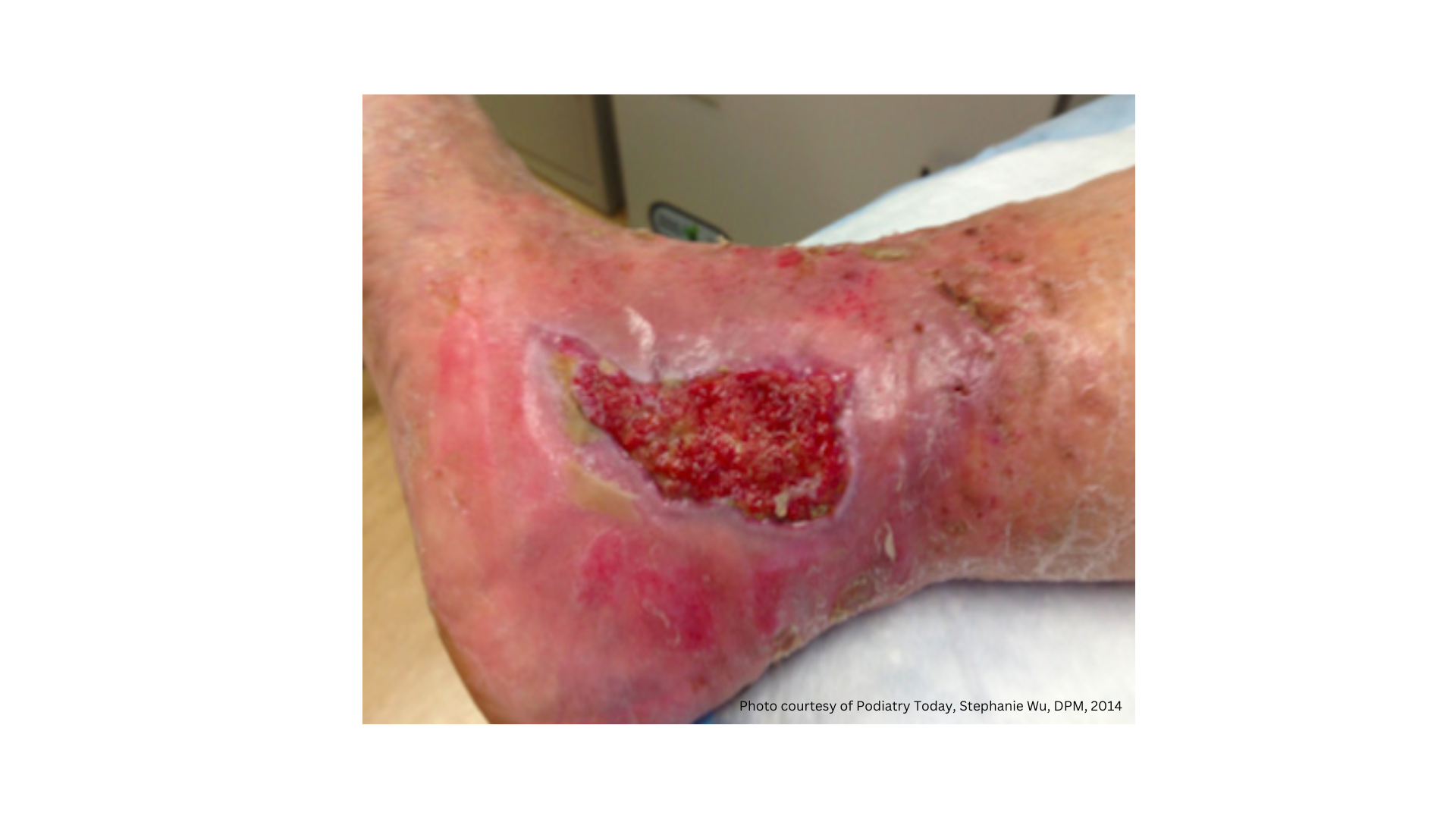Healing Wounds and Protecting Hearts
February 3, 2016
February is American Heart Month and Valentine’s Day is celebrated around the world on the 14th. So what is the connection between protecting your heart, enjoying candy and flowers with those you love on Valentine’s Day, and wound care? Many of your clients with wounds also have some type of heart disease or have elevated lipid levels. These clients need nutritional strategies for wound healing that also protects their hearts.
Protein for a Healthy Heart and Wound Healing
Since protein is one of the key nutrients for wound healing, selecting lean cuts of beef or pork with the descriptive terms “loin” or “round” is best. Suggest baking, broiling, stewing, or stir-frying meat, poultry or fish rather than frying to reduce unnecessary fat and calories. Encourage wound care clients to avoid hydrogenated fats, such as stick margarine, and use liquid vegetable oils such as canola, olive or soybean oil. Cheese is a good source of protein and low fat cottage cheese, reduced fat mozzarella or other reduced fat cheese would be good choices. Reduced fat milk and yogurt, in particular Greek yogurt, delivers the protein without the added fat.
Foods containing omega-3 fatty acids are beneficial for a heart healthy diet. Eating fatty fish such salmon, mackerel, albacore tuna, lake trout and sardines twice a week is recommended. Canola, soybean or flaxseed oil also contains omega-3 fatty acids as does walnut oil or walnuts. Based on the type of grain chickens are fed, some eggs are labeled high in omega-3s.
Chia seeds, which have been around a long time, pack a lot of nutrition in a small portion. An ounce of chia seeds has 4 grams of protein, 9 grams of fat (alpha-linoleic acid, which is a type of omega-3) plus they are low in cholesterol and high in fiber. Chia seeds are versatile and can be added to many dishes.
Beans, rice, and lentils are all good sources of protein that are naturally low in fat, cost less than traditional animal products, and add variety to the diet. Quinoa is one of those trendy grains; actually it is a seed that has the advantage of containing all of the 9 essential amino acids. 1/3 cup of cooked quinoa has 6 grams of protein.
Heart Health in its Many Forms
How does Valentine’s Day fit into a blog on wound care? Wounds can present a daily challenge and affect the quality of life for some clients. Valentine flowers or cards lift the spirit and brighten an otherwise dreary day. Serving a gourmet dinner that includes a lean protein, a glass of red wine and dark chocolate candy for dessert can warm and protect the heart. Red wine and dark chocolate contain flavanols that have been shown to decrease inflammation, improve blood flow and lower blood pressure. These are just a few ways to support the heart health and wound healing of your clients, and to celebrate the month of February.
Happy Valentine’s Day!
About The Author
Mary Ellen Posthauer RDN, CD, LD, FAND is an award winning dietitian, consultant for MEP Healthcare Dietary Services, published author, and member of the Purdue University Hall of Fame, Department of Foods and Nutrition, having held positions on numerous boards and panels including the National Pressure Ulcer Advisory Panel and the American Dietetic Association's Unintentional Weight Loss work group.
The views and opinions expressed in this content are solely those of the contributor, and do not represent the views of WoundSource, HMP Global, its affiliates, or subsidiary companies.











